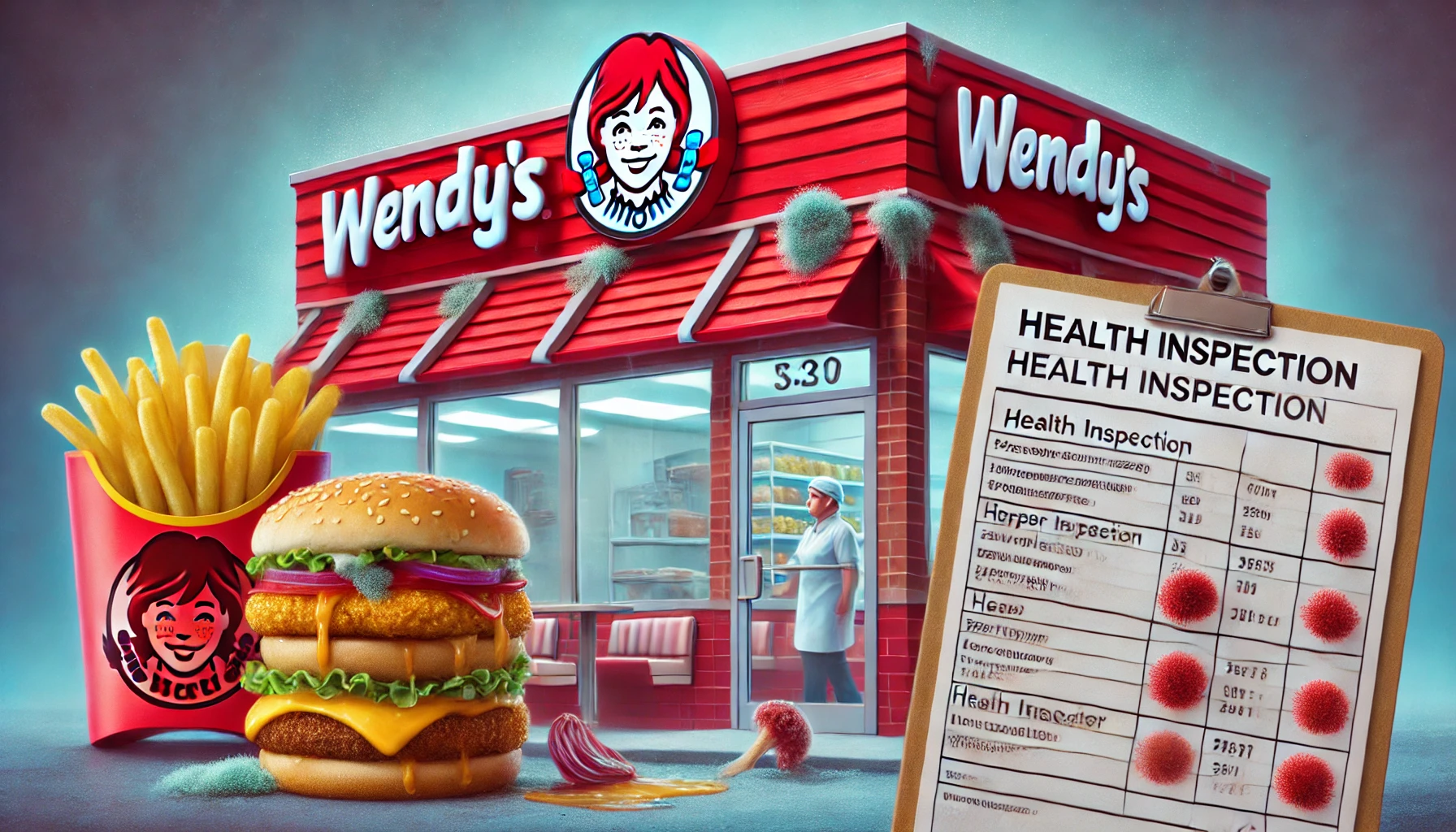A family dinner at Wendy’s in Jenison, Michigan, turned into a nightmare when 11-year-old Aspen Lamfers fell critically ill. This tragic event has become the focus of Wendys Lawsuit Michigan, a $20 million case filed against Meritage Hospitality Group, the owner of the Wendy’s franchise. The lawsuit raises important questions about food safety, restaurant hygiene, and corporate accountability. This article provides a detailed overview of the case, its implications, and its broader impact on public health and the restaurant industry.
The Impact of Wendys Lawsuit Michigan on Food Safety Practices
The Wendys Lawsuit Michiganhas drawn significant attention to the critical issue of food safety in the restaurant industry. Filed by the family of 11-year-old Aspen Lamfers, the $20 million lawsuit alleges that unsanitary practices at a Wendy’s restaurant in Jenison, Michigan, caused her severe illness. Aspen contracted an E. coli infection after eating at the establishment, which led to a life-threatening condition known as hemolytic uremic syndrome, causing kidney failure, brain swelling, and partial paralysis.
Health inspections conducted at the time revealed major violations at the restaurant, including improper food storage, unsanitary conditions, and lack of employee hygiene. These findings not only supported the lawsuit but also highlighted a broader problem of negligence in food handling within the industry.
This case underscores the importance of strict adherence to food safety regulations. Restaurants are required to follow rigorous protocols to ensure that the food they serve is safe for consumption. When these standards are not met, the consequences can be devastating, as seen in this tragic case.
The Wendys Lawsuit Michigan has sparked public concern and may lead to stronger enforcement of health codes and better training for restaurant staff. It serves as a reminder to both businesses and consumers about the vital role of vigilance in protecting public health.
Background of the Case
The Incident
In August 2022, Aspen Lamfers and her family visited a Wendy’s restaurant in Jenison. Shortly after eating a meal there, Aspen began experiencing severe symptoms, which were later diagnosed as a result of an E. coli infection. This bacterial infection can have devastating effects, especially on children.
Health Complications
Aspen’s illness escalated into hemolytic uremic syndrome (HUS), a rare but serious condition caused by E. coli. This syndrome led to:
- Kidney failure, requiring intensive medical treatment.
- Brain swelling, which caused seizures.
- Partial paralysis on her left side, affecting her mobility and quality of life.
Aspen’s condition required prolonged hospitalization and continues to demand ongoing medical care and rehabilitation. For her family, the ordeal has been both emotionally and financially draining.
Allegations Against Wendy’s
Claims Made in the Lawsuit
In April 2024, Aspen’s family filed a $20 million lawsuit against Meritage Hospitality Group, alleging that the Wendy’s restaurant’s negligence directly caused her illness. The lawsuit argues that unsanitary food handling and storage practices allowed the contamination to occur.
Health Inspection Findings
Health inspections conducted around the time of the incident revealed multiple violations at the Wendy’s location, including:
- Moldy and spoiled food being stored and served.
- Employees failing to follow proper handwashing procedures.
- Food stored at unsafe temperatures, increasing the risk of contamination.
These findings suggest a lack of adherence to basic food safety standards, reinforcing the family’s claims.
Response from Meritage Hospitality Group
Denial of Wrongdoing
Meritage Hospitality Group has denied the allegations, stating that their restaurants prioritize food safety and adhere to strict protocols. The company has not acknowledged any responsibility for Aspen’s illness.
Potential Legal Strategy
In their defense, Meritage may argue that there is insufficient evidence to link Aspen’s illness directly to their restaurant. They may also claim that external factors, such as food consumed elsewhere, could have caused the contamination.
Broader Implications
Food Safety Concerns in Restaurants
This case underscores the critical importance of maintaining high food safety standards in the restaurant industry. A single lapse in hygiene or food handling can have devastating consequences for customers, particularly children and the elderly, who are more vulnerable to foodborne illnesses.
Impact on Restaurant Practices
High-profile lawsuits like this often lead to stricter enforcement of health regulations and changes in industry practices. Restaurants may be required to undergo more frequent inspections, improve employee training, and adopt better food storage and handling procedures.
Legal Precedents
The outcome of this case could set a precedent for future foodborne illness lawsuits. If the court rules in favor of Aspen’s family, it may encourage other victims to pursue legal action, leading to greater accountability in the industry.
Impact on the Community and Family
Aspen Lamfers’ Recovery Journey
Aspen’s recovery has been long and challenging. She continues to face significant health issues, requiring ongoing medical care and therapy. The emotional toll on her and her family is immense, as they navigate the aftermath of this life-altering event.
Public Reaction
The local community has rallied around Aspen and her family, offering support and calling for greater accountability from restaurants. The case has sparked widespread concern about food safety and has prompted many customers to question the practices of their favorite dining establishments.
Conclusion
The Wendys Lawsuit Michigan against franchise owner Meritage Hospitality Group underscores the critical importance of food safety in the restaurant industry. Aspen Lamfers’ ordeal is a tragic reminder of how lapses in hygiene and proper food handling can lead to life-altering consequences. As the legal battle continues, it holds the potential to drive meaningful changes, including stricter regulations and greater accountability across the industry.
For Aspen and her family, this lawsuit is not solely about financial compensation but also about advocating for better practices to ensure no other family experiences such a devastating event. This case reinforces the urgent need for vigilance in protecting public health and guaranteeing that every meal served is safe and free from contamination.
FAQs
What caused Aspen Lamfers’ illness after eating at Wendy’s?
Aspen contracted a severe E. coli infection, likely due to unsanitary food handling and storage practices at the restaurant.
What is the main claim in the lawsuit filed by Aspen’s family?
The family alleges that negligence in food safety at Wendy’s caused Aspen’s life-threatening illness and ongoing health issues.
What health violations were found at the Wendy’s location?
Inspections revealed moldy food, poor hand hygiene by staff, and unsafe food storage practices.
How has Meritage Hospitality Group responded to the allegations?
Meritage denies wrongdoing, emphasizing its commitment to food safety while contesting the connection to Aspen’s illness.
What broader impact could this lawsuit have on the restaurant industry?
The case could lead to stricter food safety regulations, frequent inspections, and increased accountability for restaurants.
Article Recommendations
Monday Shampoo Lawsuit: How Social Media is Amplifying Consumer Complaints
Anaheim Mesothelioma Legal Question: Exploring Legal Challenges and Solutions for Asbestos Victims
Alaska Mesothelioma Legal Question: Understanding the Statute of Limitations and Filing Deadlines





